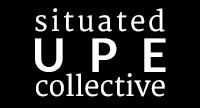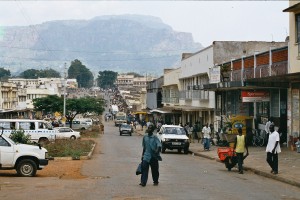 During 2014 we are organizing a series of special sessions on “Pluralizing the Approaches to Urban Political Ecology in a ‘World of Cities’”. The aim is to discuss how we in the coming decade can create a broad and rich repertoire for unpacking urban political ecologies in a ‘world of cities’ that can handle and take into account a broad experience of urbanization across the world. This effort is part of the SUPE Platform’s longer commitment to contribute to the field.
During 2014 we are organizing a series of special sessions on “Pluralizing the Approaches to Urban Political Ecology in a ‘World of Cities’”. The aim is to discuss how we in the coming decade can create a broad and rich repertoire for unpacking urban political ecologies in a ‘world of cities’ that can handle and take into account a broad experience of urbanization across the world. This effort is part of the SUPE Platform’s longer commitment to contribute to the field.
The first special session will be in February 27 – March 1 at DOPE, the Dimensions of Political Ecology Conference in Lexington. Please see instructions below on how to send in an abstract. Similar sessions will be organized in March 27-29 at the Southern African Cities Conference in Johannesburg**, and in August 24-29 at the Royal Society of Geographers with IGB in London.
But the first session will be at DOPE. We really hope you can join us in Lexington!
/Henrik, Jon and Mary
**Note: In Johannesburg the organizers divide talks into session so we might not get as clear gathering here, but we will still aim to connect with other presenters.
—-
Call for Papers (CFP) for special session at DOPE, Dimensions of Political Ecology Conference 2014, Lexington, KY, February 27 – March 1 on:
Pluralizing the Approaches to Urban Political Ecology in a ‘World of Cities’
Session organizers: Henrik Ernstson [1]*, Jonathan Silver [2], and Mary Lawhon [3]
[1] Department of History, Stanford University; and African Centre for Cities, University of Cape Town; [2] Department of Geography, Durham University; [3] Department of Geography, Geoinformatics and Meteorology, University of Pretoria. *Session contact: henrik.ernstson@stanford.edu
Abstract: Urban political ecology has provided critical insights into the sociomaterial construction of urban environments, their unequal distribution of resources, and contestation over power and resources. Most work is rooted in Marxist urban geographical theory, typically beginning with a historical materialist theory of power, then examining particular artifacts and infrastructure to provide a dialectical critique of society. However, there are numerous theoretical framings and entry-points to unpack unequal oppressive urban environments—and their potentialities for struggle and liberation.
In this session, we continue our search for ways to pluralize the approaches to urban political ecology. Our own efforts has focused empirically on cities in Africa and theoretically to articulate a situated urban political ecology through postcolonial critique and a focus on everyday practices. But, this is just one path among others and in this session we encourage novel and creative approaches, or the reinvention or ‘hacking’ of established approaches, to participate in building a broad and rich repertoire of urban political ecology. The rationale is that in a ‘world of cities’ where urbanization works in so varied ways we need a suit of methods and theories to go about the task to unpack, analyze and participate in the shaping of urban environments.
We therefore hope to gather a session that can help to envision the continued development of urban political ecology in the coming decade, including developments needed to take on—as scholars and public intellectuals—the critique of urban environments in a ‘world of cities’. We plan to follow-up this special session with similar sessions at the Southern African Cities Conference in Johannesburg** in late March, and the Royal Society of Geographers in the UK in August, 2014. Please join in this ongoing conversation.
—
To submit an abstract to this session: Please write an abstract between 200-300 words and send to Henrik Ernstson (henrik.ernstson@stanford.edu) before November 25, 2013. Final submission to conference organizers of the whole session is on the December 2, 2014, and we will let you know by November 28 if your abstract has been included in our special session. If not, the organizers seems to guarantee that they will find another session for your paper. If you are to participate in the conference you will need to pay the small conference fee of 20 USD for students and 40 USD for faculty before registration deadline December 2nd, 2013. For more information about the conference, see here: http://www.politicalecology.org/#!2014-conference/cdaa
Format of the session: The format will include three or four presenters, and if more interest be divided with 6-8 presenters over two sessions. As session organizers we will also present a paper and serve as discussants to keep the session together and prepare for a wider discussion in the end. Each presenter will generally have 15 to 20 minutes to present with time for discussion.
Organizers of the session: For more information about Henrik, Jon and Mary, please visit the collaborative platform we are building around Situated Urban Political Ecologies (#SUPE): http://www.situatedecologies.net/supe
*Session contact is Henrik Ernstson at henrik.ernstson@stanford.edu.
**Note: In Johannesburg the organizers divide talks into session so we might not get as clear gathering here, but we will still aim to connect with other presenters.

